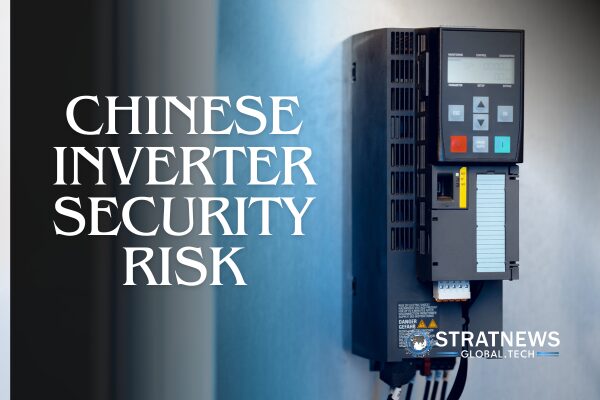US Reviews Security Risks in Chinese-Made Energy Devices After Hidden Communication Devices Found
US energy officials are reassessing the potential threats posed by Chinese-made devices used widely in renewable energy systems, following the discovery of hidden communication devices inside some products. The findings have raised concerns over national security and grid stability.
Rogue Communication Devices Found in Inverters and Batteries
Power inverters—crucial for connecting solar panels and wind turbines to electrical grids—are largely manufactured in China. While remote access is built into these systems for maintenance, firewalls are typically installed to block unauthorised communication. However, US experts examining Chinese-made inverters found hidden components, including cellular radios, that were not documented in official product specifications.
These rogue elements could potentially bypass existing firewalls, allowing for remote interference that could destabilise or even damage critical infrastructure. Similar undocumented devices have also been discovered in batteries from several Chinese suppliers, although the exact scope remains unclear.
Growing Concerns Amid Broader Infrastructure Tensions
Mike Rogers, former director of the US National Security Agency, stated, “China sees value in putting critical US infrastructure at risk.” Rogue inverters could be remotely manipulated to alter settings or even shut down, posing a risk of grid failure and widespread blackouts.
While the US Department of Energy (DOE) has not publicly confirmed the findings, a spokesperson noted that manufacturers often fail to disclose full software functionalities. The DOE is working on addressing these gaps through stricter component inventories and contractual obligations.
The Chinese embassy in Washington dismissed the concerns, accusing the US of “smearing China’s infrastructure achievements” under the guise of national security.
Increasing Scrutiny and Planned Restrictions
The discoveries come as the US intensifies scrutiny of Chinese technology in critical infrastructure. Earlier this year, lawmakers introduced legislation aimed at banning battery purchases from six Chinese firms by 2027. These companies include CATL, BYD, Envision Energy, and Gotion High-tech.
Some US utilities are already reducing reliance on Chinese inverters. Florida Power & Light, the state’s largest energy provider, is among those shifting to alternative sources.
The DOE reiterated its commitment to bolstering domestic supply chains and supporting the integration of trusted equipment into the national grid.
Global Ramifications and European Security Measures
Globally, Huawei dominates the inverter market, with a 29% share in 2022. German solar firm 1Komma5 has avoided using Huawei products, citing security risks. CEO Philipp Schroeder warned that as more renewables come online, dependence on Chinese technology could be exploited in a geopolitical crisis.
European experts echoed these concerns. The European Solar Manufacturing Council estimates that over 200 gigawatts (GW) of solar capacity—more than 200 nuclear power plants’ worth—is tied to Chinese inverters. A coordinated shutdown could cause lasting disruptions.
Lithuania has already legislated to restrict remote access from Chinese equipment on energy systems above 100 kilowatts. Estonia is also assessing similar actions. The UK is currently reviewing Chinese-made technology in its energy infrastructure, with a focus on inverters.
In a stark example, a commercial dispute between Sol-Ark and Deye last year resulted in inverters being remotely disabled from China, prompting serious concern among US officials.
A Call to Address Strategic Vulnerabilities
The energy sector, unlike telecoms or semiconductors, lacks consistent regulations to manage such risks. Many household solar systems operate below security thresholds despite their growing contribution to national grids.
NATO has warned of China’s increasing attempts to control infrastructure in member states. “We must identify strategic dependencies and take steps to reduce them,” a NATO official stated.
As Western nations ramp up renewable capacity, calls are growing to secure energy networks against emerging threats embedded in foreign technology.
with inputs from Reuters


